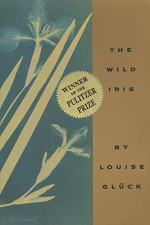
|
| Name: _________________________ | Period: ___________________ |
This test consists of 15 multiple choice questions and 5 short answer questions.
Multiple Choice Questions
1. What does God say He has two of in "Spring Snow"?
(a) Two selves and two kinds of power.
(b) Two faces.
(c) Two forms.
(d) Two types of love.
2. Under what great tree does the lamium live in "Lamium"?
(a) Maple.
(b) Hawthorn.
(c) Sycamore.
(d) Pine.
3. What does God say "glitters like the moon" (9) in "Spring Snow"?
(a) Fireflies.
(b) The earth.
(c) The snowfall.
(d) The garden.
4. Who does the speaker in "Matins" (#4) address?
(a) The poet.
(b) The birch tree.
(c) The sky.
(d) God.
5. Who is the speaker in "The Garden"?
(a) A row of peas.
(b) The poet.
(c) A young couple.
(d) God.
6. Why does the witchgrass feel humans even bothered to give it a name in "Witchgrass"?
(a) To have one more slur.
(b) To be able to talk about it.
(c) To create something new.
(d) To write poems about it.
7. What does the witchgrass say it will someday do at the end of "Witchgrass"?
(a) Come back to haunt the gardener.
(b) Take over the earth.
(c) Die out completely.
(d) Constitute the field.
8. What mistake does Noah say depressives make in "Matins" (#1)?
(a) They spend too much time in doors.
(b) They dwell on their sadness.
(c) They cannot see the sunlight in the darkness.
(d) They attach themselves to one part of nature, rather than the whole.
9. What does the speaker of "Scilla" call his audience?
(a) Idiot.
(b) Master.
(c) Beautiful.
(d) Fool.
10. The poet in "Matins" (#3) feels she has seen no proof of what?
(a) God's existence.
(b) Her husband's love.
(c) Her garden will be successful.
(d) The tree dying.
11. What does the speaker in "Matins" (#4) say s/he may be better for addressing instead of God?
(a) The flowers.
(b) The birds.
(c) The birches.
(d) The clouds.
12. Who is the speaker in "The Hawthorn Tree"?
(a) A young man.
(b) A young woman.
(c) The hawthorn tree.
(d) God.
13. What is the young couple doing in "The Garden"?
(a) Planting a row of peas.
(b) Planting irises.
(c) Planting tomato plants.
(d) Weeding the garden.
14. What does the lamium say "living things don't all require...in the same degree" (5)?
(a) Activity.
(b) Food.
(c) God.
(d) Light.
15. To whom does the speaker in "Matins" (#2) speak?
(a) God.
(b) The garden.
(c) Her son.
(d) Her husband.
Short Answer Questions
1. Who does the speaker in "Matins" (#4) say s/he should be buried with at the end of the poem?
2. What eartly image is referenced multiple times in "Love in Moonlight"?
3. What was the couple given which compels the speaker in "April" to say he expected better of them?
4. What does the speaker of "Scilla" say humans are always planning?
5. What does the speaker in "The Garden" find it unbearable to look at?
|
This section contains 452 words (approx. 2 pages at 300 words per page) |

|




